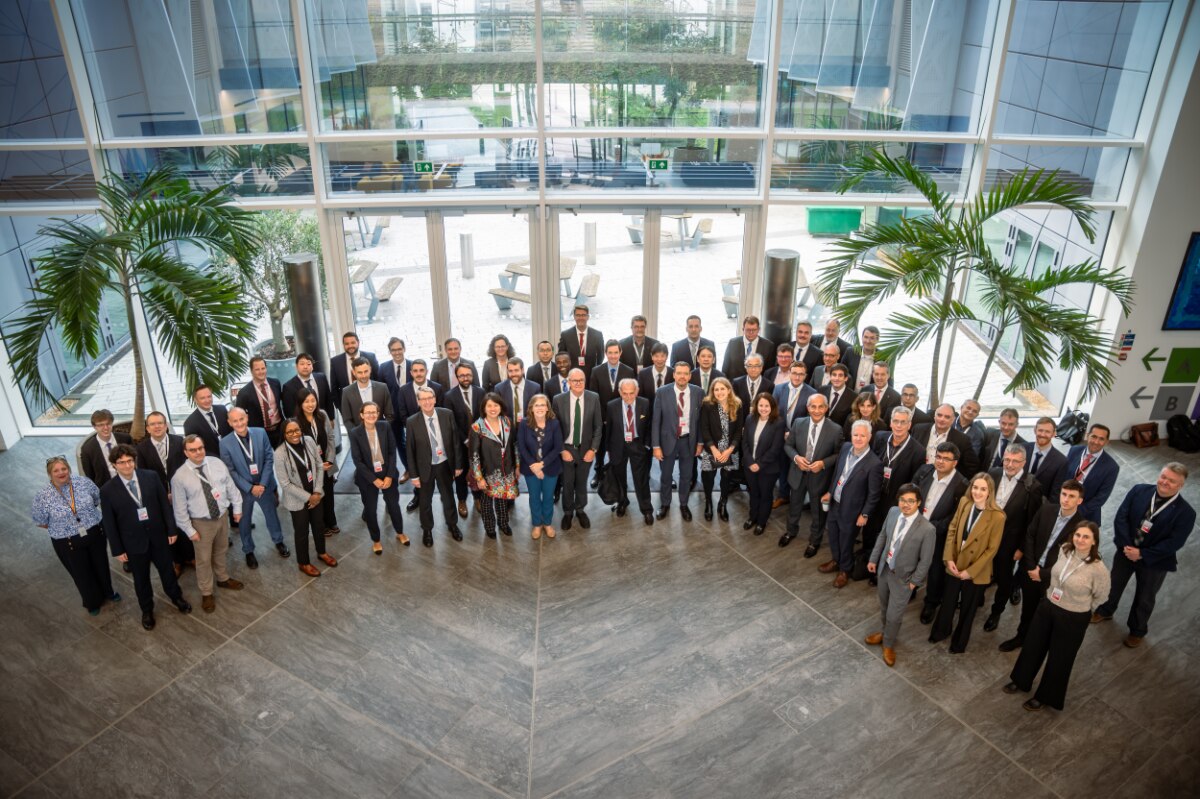Why Arm is the Global Semiconductor Ambassador

By Vince Jesaitis, Head of Global Government Affairs, and Peter Stephens, Director, Government Partnerships (UK), Arm
As the foundational computing platform for much of the world’s technology, Arm has a unique understanding of the global, interconnected and highly specialized semiconductor supply chain. Given this central role in building the future of computing, Arm has become a critical partner and advisor for governments worldwide. Many governments are implementing policies and support for advancing areas like artificial intelligence (AI), cybersecurity and more power-efficient computing infrastructure, as well as education and training to ensure students have the knowledge and skills to enter the future semiconductor workforce.
At a recent G7 Semiconductor Experts Working Group that Arm was asked to host by the UK government, these topics were discussed. Representatives from Canada, the European Union, France, Germany, Italy, Japan, the United Kingdom, and the United States came to Arm’s global headquarters in Cambridge, along with industry representatives from those countries and regions. Following opening remarks from Lord Patrick Vallance and Arm Chief Architect Richard Grisenthwaite, the group deliberated on common challenges the industry is facing, and ultimately how we can work together with the industry to advance those areas.

As Richard previewed in his opening remarks, these challenges need collective action, particularly around the provenance of intellectual property (“IP”) used in the design of semiconductors and its impact on trustworthiness.
Arm’s security DNA
Security has always been in Arm’s DNA, with over 30 years of innovation focused on technologies to mitigate the ongoing evolution of security threats. Richard has written previously about the importance of computing security in the age of AI.
He said “[s]ecurity is the greatest challenge computing needs to address to meet its full potential”. The challenge is compounded by the optimism bias we find among end users who assume that devices are “100% secure” simply because they are on the market. As our lives become more connected, policy makers have identified the challenge articulating what security looks like to the mass market and how to “deliver a world that many feel we already live in.”
There are examples of governments worldwide implementing various security initiatives. Singapore introduced a security labelling scheme for consumers, the US implemented laws to leverage federal procurement as a lever for change, international statements were published and the UK government developed the Product Security and Telco Infrastructure Act to prohibit the sale of consumer IoT products that do not meet basic security requirements, and we expect more to come in this area.
Policymakers always need to strike the balance between driving innovation, but also protecting people from harm by driving more adoption for better practices around security. The government can have a strong role enforcing these security practices if the industry is unable to encourage more active adoption. At the same time, technology innovation from the industry can be used to improve and advance government security policies.
These include the foundational security technologies that are already available, like Arm’s Memory Tagging Extension (MTE), which is built into the latest Armv9 architecture. MTE is important because it allows companies and developers to mitigate memory safety issues, which account for 70 percent of all serious security bugs. Memory safety is a significant security issue that has been recognized by the US government, with the White House Office of the National Cyber Director releasing a report on this class of vulnerabilities entitled “Back to the Building Blocks”. The report cited existing solutions that require broader industry update to be effective, calling out MTE among others. MTE is already being embraced by the mobile market, with Google enabling MTE in Android 14.
While plenty of impressive, thoughtful policies and initiatives exist across individual countries, there remains no “silver bullet” for security improvements worldwide. It is a complex space, requiring a lot of work across many different areas. However, initiatives like PSA Certified do a great job at ensuring global partnership around building security best practices and democratizing the adoption of security across the industry. It has quickly become the fastest growing ecosystem, uniting industry, standards bodies and policy makers to build the foundational trust required in connected devices.
Power-efficient AI
Another ongoing topic at the forefront of every government worldwide is how to manage the increasing power demands in the age of more advanced compute and AI. Looking ahead, AI workloads will continue to challenge long-term sustainability – both for businesses and the planet – unless the world embraces power-efficient processing technologies.
Just like security, Arm has a heritage in power efficiency. This dates back to the world’s first GSM cell phones of the mid-90s that were powered by Arm processors. Now and in the future, we believe that it’s vital for power-efficiency to be applied across the spectrum of technologies, from smartphones used by the world’s consumers to data centers processing vast amounts of AI workloads.
Finding ways to limit the power consumption of these large data centers is paramount, especially when you consider that the world’s data centers require 460 terawatt-hours (TWh) of electricity annually, which is the equivalent to the entire county of Germany. Managing these energy costs will require significant investments into power-efficient AI computing from governments worldwide.
Fortunately, we know that much of industry is already demanding efficient AI. The world’s leading technology companies, including Amazon, Google, Microsoft and Oracle are turning to Arm to adopt our power-efficient technology for their silicon designs for cloud data centers. This is crucial as governments worldwide back the building of new data centers for advanced AI processing in their own countries.
The global semiconductor skills shortage
Finally, the semiconductor industry is experiencing a global skills shortage. In the US alone, industry estimates show that there will be a shortage of around 30,000 engineers and 90,000 technical workers by 2030. There are key challenges: we need to ensure science and computer science are accessible and that those with an interest in computing are inspired to pursue careers designing the brains that drive the building blocks of technology.
This is part of the reason why Arm announced the Semiconductor Education Alliance in July 2023. The initiative brings together key stakeholders worldwide across industry, academia and government, with the intention of creating the semiconductor workforce of the future through educating a new generation of talent and upskilling the existing workforce. Arm has also published a competency framework, outlining the knowledge, skills and attributes needed to build this future semiconductor workforce.
The epicenter of the global technology ecosystem
In our role at the epicenter of the global technology ecosystem, Arm has a unique perspective that can help to steer conversations about the future of technology. Our heritage in security and power efficiency is today more relevant than ever, as the new age of AI presents increasingly complex challenges for users, governments and industry. Collective action among industry, government and researchers will lead to sustainable, safe and secure AI that will benefit us all.
Any re-use permitted for informational and non-commercial or personal use only.











